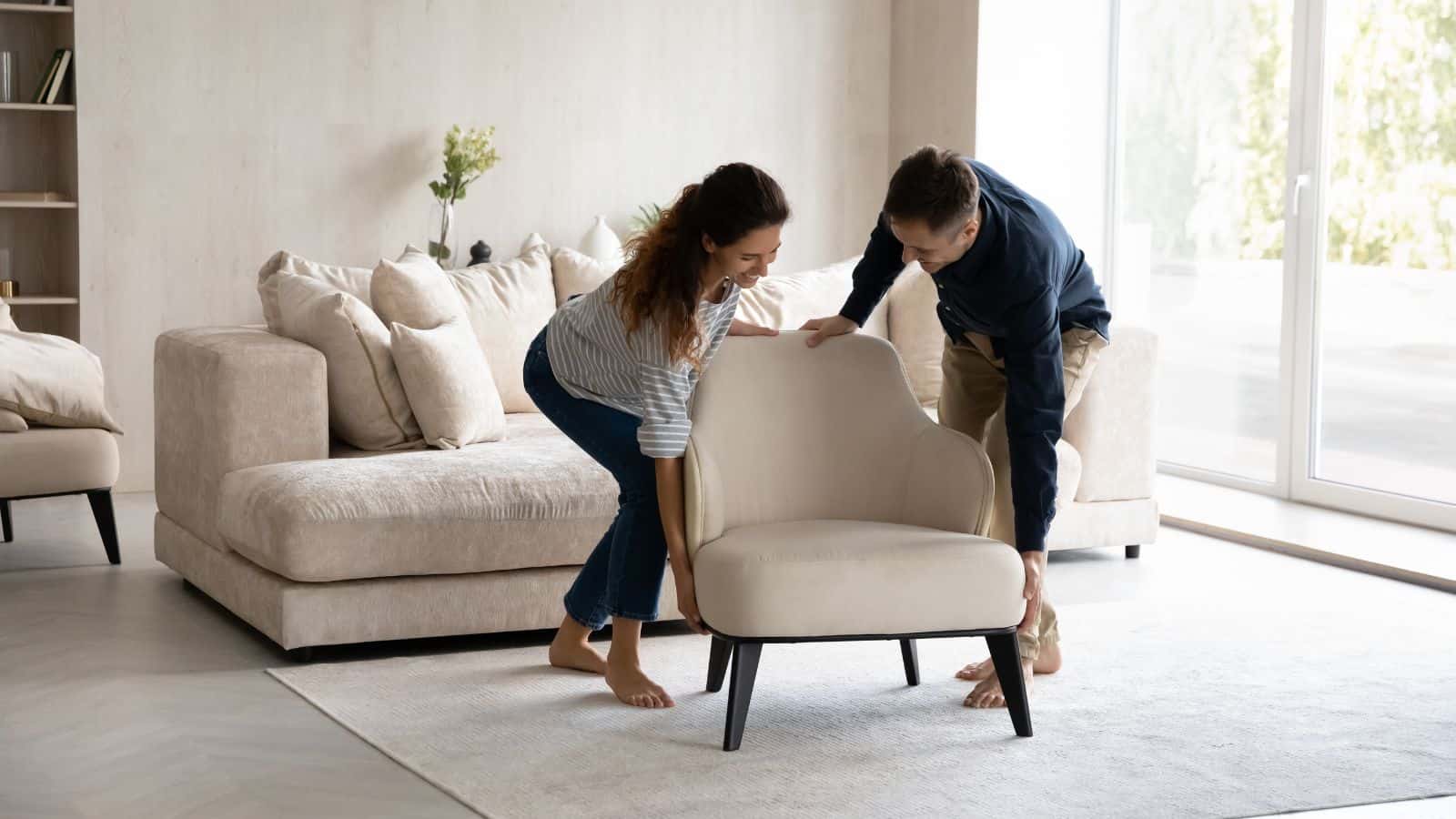Aging doesn’t have to be overwhelming, and there are plenty of simple adjustments that can make life easier for seniors. In this article, we provide practical tips designed to improve comfort, safety, and daily living for older adults, making the aging process more manageable.
Nutritional Adjustments for Aging

According to Healthline, “Nutrients that become especially important as you age include protein, vitamin D, calcium, and vitamin B12.” It’s also important to note that most older people will need fewer calories per day. If your relative is struggling to prepare and cook food for themselves, you could try a meal delivery service to make sure they get well-balanced meals each day.
Access to Transportation

If you become unable to drive as you get older or public transportation becomes too expensive, it can be helpful to explore the transportation opportunities that may be available to you. Often, you can get a discount for public transportation, and there may be a community shuttle bus operating in your area.
Lifelong Learning

Taking part in educational courses or attending lectures on topics of interest can enhance your cognitive function and provide an opportunity to meet like-minded people. Actively learning and carrying out hobbies is also linked to mental health benefits, improving your overall well-being.
Improving Sleep

Having a consistent sleep schedule can help you sleep better, therefore improving your overall health. The Help Guide says that “older people who don’t sleep well are more likely to suffer from depression, attention and memory problems, excessive daytime sleepiness, and experience more nighttime falls.”
Prioritizing Mental Health

Older people often have high levels of depression as they may face struggles with their health or experience more grief. Choosing to proactively seek professional therapy can help, as it provides a safe space to discuss feelings as someone gets older. It’s also important to keep up social interactions by joining local groups or seeing friends to reduce loneliness.
Simplifying Home Layouts

Removing clutter and ensuring a space is easy to navigate can help prevent falls in the home. This might mean removing furniture that makes it hard to walk through a room or properly securing rugs so they don’t become a trip hazard.
Financial Management

Finances can be tricky for older people, as income may be restricted or confusing. Using simple financial management tools and apps can help seniors track their expenses and create a monthly budget that works for them. It can also be helpful to speak to a professional about how to manage retirement funds.
Community Engagement

Retirement is a great opportunity for meeting others and working to contribute to your local area. You could start volunteering or sign up for a mentoring initiative where you can work with younger people who need advice. There are often events and activities specifically for older people on offer, too.
Preventive Health Care

Preventative health checks and treatments can be a big help for older people, and it’s important to be proactive when it comes to annual flu shots, cancer screenings, and wellness check-ups. Family Doctor says, “By preventing problems, or identifying them early, you are more likely to live a longer, healthier, and more satisfying life.”
Keeping Active

Physical activity can become harder as you get older, but it’s important to stay active to support your joints, muscles, and overall health. Have a look at your local community center or gym for senior-friendly activities such as tai chi or specific fitness classes that will allow you to stay active and social.
Online Medical Services

Nowadays, you can often see a doctor over a video call. This is ideal for those with limited mobility or older people who are struggling with access to transportation. You can also look into smart medical devices that can be installed at home to monitor elderly people’s vitals and alert healthcare providers when they may need help.
Creating Age-Friendly Public Spaces

It’s great to get out and about, but older people can be put off because they feel their needs might not be met in public. It’s therefore important to advocate for seniors by including more benches, improved lighting, and non-slip surfaces in public areas.
Keeping on Top of Medication

A lot of older people struggle with the number of medications they need to take each day, as it can be hard to remember which pill is which and what schedule they should be following. Pill organizers and digital reminders can be helpful, but it’s also worth regularly reviewing their medication needs with a doctor.
Addressing Vision and Hearing Loss

According to Healthy Hearing, “Around 20% of adults 75+ have vision and hearing loss, known as dual sensory impairment.” This can have a significant impact on a person’s day-to-day activities, so it’s important to modify their home to help them out. This could include installing brighter lights or visual doorbells.
Supporting Caregivers

Caregivers do an excellent job at looking after their loved ones, but it’s important to provide them with the proper resources and training they need. It can be an emotionally and physically taxing job, so support networks and respite care options can offer temporary relief.
Utilizing Senior Discounts

Seniors are able to access a wide range of discounts that help them enjoy a normal life even with a low retirement income. This often includes cheaper rates across transportation, dining out, and entertainment, meaning they can manage their budget as well as keep an active social life.
Tailoring Insurance Coverage

As you go through life, it’s important to keep reviewing your health insurance policy to make sure it works for you. For example, seniors may benefit from adjustments such as Medicare, supplemental policies, or long-term care insurance. Speak to a financial or healthcare advisor to help you make these decisions.
Increasing Safety Measures

Safety measures in the home can help older people freely move about their space with confidence. Items such as grab bars, non-slip mats, and improved lighting can help to prevent accidents, and wearing a personal safety device means that they can alert emergency services with the press of a button.







